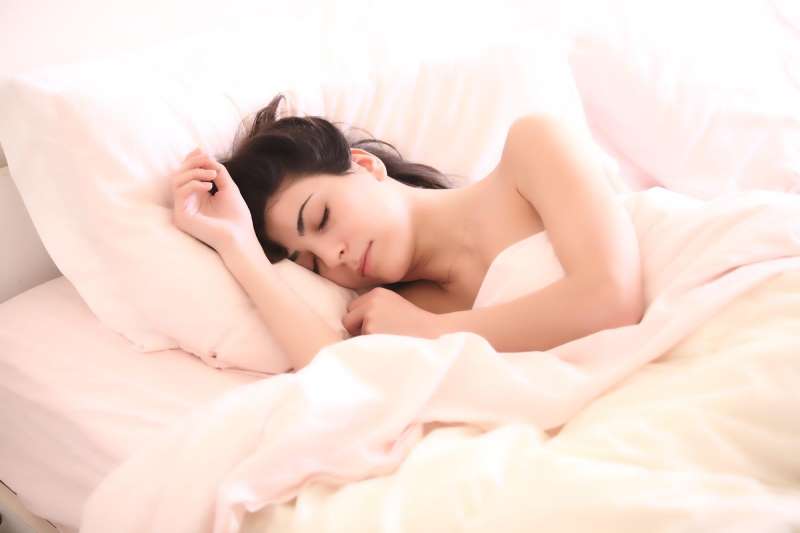 It’s called beauty sleep for a reason. You may not realize how much sleep and skin health are related. Not getting enough sleep directly reflects on the quality, color, and elasticity of your skin.
It’s called beauty sleep for a reason. You may not realize how much sleep and skin health are related. Not getting enough sleep directly reflects on the quality, color, and elasticity of your skin.
If you’re looking to learn more about sleep and skin repair, you’ve come to the right place. We’ll go over the most common sleep and skin problems and how to fix them. Let’s get your skin and sleep back on track.
Lack of Sleep Causes Dull Skin
When we sleep our bodies release melatonin to help us know it’s time to get some shut-eye. This is a crucial time of the day for all parts of our bodies. If you aren’t getting enough sleep, melatonin levels are thrown off.
Missing sleep also causes the levels of cortisol in your body to increase. Cortisol is known to trigger inflammation in your body. If inflammation is left to break proteins down in your skin, it will lose its radiance.
Radiant, smooth, skin looks healthy and refreshed. If you aren’t getting enough sleep, your skin will look dull.
When you’re feeling tired, it also means you’re not getting enough blood flow. Blood flow issues are a sign your body is lacking oxygen in your blood. Without enough oxygen, you’ll see skin pigmentation, blotchy patches, and discoloration.
To keep your skin looking fresh, keep your blood flowing. Get plenty of rest, exercise, and a full night’s sleep. You’ll feel and look your best with a good night’s sleep.
Dry Skin
Not getting enough sleep can lead to dehydration. Dehydration causes your skin to lose moisture. Young, healthy skin is full of moisture. As we age, our skin tends to lose this.
When we sleep, we also perspire. This can cause a loss of skin moisture. To help combat this water loss during sleep, make sure to drink plenty of water.
Getting your rest will also keep your PH levels balanced. When you sleep, your body needs to rest and regenerate. If you’re tossing and turning unable to rest, your body won’t be balanced.
Keep your skin staying hydrated with a moisturizer as well. Good quality sleep, plenty of water, and a good moisturizer will give your skin the hydration it needs.
Poor Sleep Quality and Your Eyes
We’ve all woken up with bags or dark circles under our eyes. When you don’t get enough sleep, your blood vessels start to dilate. This will create dark circles under your eyes.
Lack of sleep also depletes your water levels. This imbalance will make your eyes puffy and worsen dirk circles. It’s no surprise when you have a terrible night of sleep and wake up to black inflamed eyes.
Stomach fluid drains into the skin under your eyes when you sleep on your stomach as well. Sleeping on your stomach will make puffiness and inflammation worse.
To keep your eyes looking fresh, get a good night of sleep. If your eyes start to look dark and puffy, this could be a sign you aren’t getting enough sleep. Take the time to get the rest you need.
Lack of Sleep and Skin Aging
Sleep and stress have a cyclical relationship. Sleep has a direct effect on your stress levels. If you aren’t managing your stress it could be affecting your sleep as well.
The stress from not sleeping will affect the levels of collagen in your skin. How elastic your skin is will depend on how much collagen your skin has. If your collagen breaks down, you’ll see more fine lines and wrinkles.
Your skin becomes softer and thinner. You’ll notice less firmness. When your skin isn’t as thick, you’ll see more prominent wrinkles.
Getting more sleep will help boost collagen levels in your skin. When you’re rested, your skin will keep more of its firmness and elasticity.
Skipping Sleep Affects Your Whole Health
When you don’t get enough sleep, it can affect your overall health. When you’re tired, you may feel sluggish and look to sugary foods. Sugar can also damage your skin.
If you’re turning to sugary drinks, caffeine, or alcohol to stay awake, this can cause serious skin issues or worse. These drinks can dry out your skin and cause further dehydration.
If you’re too tired, you might also skip workouts or physical activity. This can also cause hormonal imbalances and poor oxygen and blood flow. Make sure you’re getting plenty of physical activity.
Choose healthy, whole foods, whenever possible. This means fresh leafy greens, vegetables, fruits, and unprocessed foods. This will help keep your energy levels up throughout the day.
How to Solve Your Sleep and Skin Problems
To solve your skin problems, you need to get more sleep. Getting a better night’s sleep will improve the quality of your skin inside and out. You’ll feel more rested and look more rested on the outside.
To get more sleep, try to calm your mind before hitting the hay. Read a book, meditate, do yoga, or stretch. Lay off your cell phone when you’re in bed.
Give yourself plenty of time to fall asleep as well. If you need more time to wind down, take a shower or a bath. If you go from your cell phone directly to your bed, you’re likely overstimulating yourself.
Screens and other distractions make it hard to fall asleep. Try a more relaxing bedtime routine for a better-quality sleep. Your skin will look and feel better.
Sleep and Skin Health
When we sleep, our body is hard at work replenishing and rejuvenating itself. A lack of sleep directly affects your skin health. You’ll notice dryer skin, discoloration, and more fine lines or wrinkles.
To combat these skin issues, give your body the rest it needs. Make sleep a priority and you’ll notice healthier, more glowing skin. For more beauty and health advice, check out the blog section for great tips and resources.




